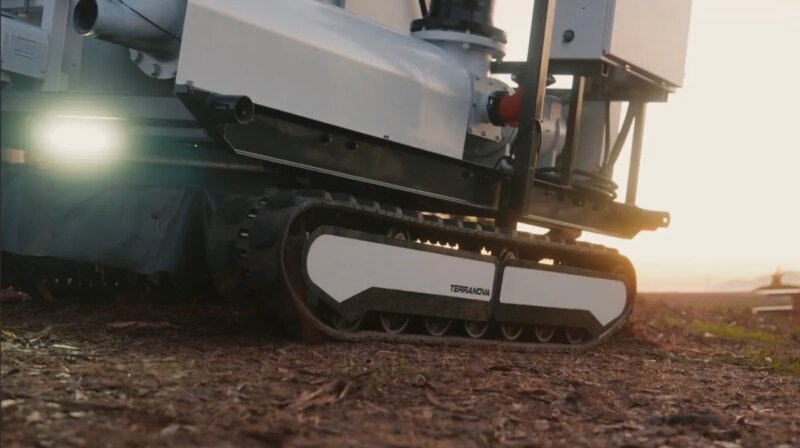Top Highlights
-
Sinking Problem: Parts of San Rafael are sinking by half an inch annually, with some neighborhoods, like the Canal District, sinking three feet, increasing flood risk from rising sea levels.
-
Innovative Solution: Startup Terranova offers a cost-effective alternative to expensive seawalls by injecting a slurry of wood waste into the ground, potentially lifting the land and preventing flooding for only $92 million in San Rafael.
-
Robotic Efficiency: Terranova employs robotic technology to autonomously inject the wood slurry deep underground, guided by a sophisticated software model that optimizes injection patterns based on geographic data.
-
Financial Viability: The company’s recent $7 million funding round reflects confidence in its approach, with plans to share revenues with contractors, targeting not just cities but also other land-lifting projects to address broader environmental challenges.
Innovative Solutions to Rising Flood Risks
San Rafael faces a pressing challenge. Parts of the city sink about half an inch yearly. While that may seem insignificant, some neighborhoods have subsided three feet. This deterioration places these areas at higher risk of flooding due to rising sea levels. To address this issue, cities worldwide will face growing threats, with estimates indicating that 300 million people may encounter routine flooding by 2050. Traditional solutions, like building seawalls, come with hefty price tags. In the U.S., costs could reach $400 billion.
Enter Terranova, a startup proposing a bold alternative: lifting the city instead of merely holding back the waters. The company’s robots inject a slurry made from recycled wood waste into subsiding ground. This innovative approach aims to eliminate historical subsidence and protect vulnerable areas like San Rafael’s Canal District.
A Sustainable Future for Urban Landscapes
The financial implications of Terranova’s solution are significant. The company estimates it can restore 240 acres of San Rafael for around $92 million, a fraction of seawall costs. Co-founder and CEO Laurence Allen emphasizes the affordability of his method, especially for economically strapped cities. The startup recently raised $7 million to further its mission, buoyed by the potential to use inexpensive and readily available materials.
Terranova employs robotic technology for efficient delivery of the slurry. This automation allows precise injection and minimizes labor costs. The baking system does not merely inject materials but uses advanced modeling software. Such technology enables city planners and contractors to visualize project outcomes, enhancing both planning and execution.
While some experts express concerns about the seismic impacts of consolidated wood slurry, Allen remains optimistic. He suggests that his approach may offer advantages over traditional dikes and seawalls. By potentially allowing cities to adapt to changing environments at a lower cost, Terranova presents a groundbreaking option in the ongoing fight against climate change.
With urgency mounting, innovative solutions like these take center stage. As cities grapple with rising waters, the path forward holds both challenges and opportunities. With the right approach, it is possible to turn adversity into sustainable urban living.
Expand Your Tech Knowledge
Learn how the Internet of Things (IoT) is transforming everyday life.
Discover archived knowledge and digital history on the Internet Archive.
TechV1

